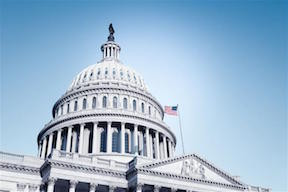CDD joins other consumer organizations calling on Appeals Court to Ensure FTC can protect the public: Amicus Brief filled in AT&T Case

Center for Digital Democracy, Center for Democracy & Technology, Consumer Action, Consumer Federation of America, Consumer Federation of California, Consumers Union, Electronic Privacy Information Center, National Association of Consumer Advocates, National Consumers League, Benton Foundation, Common Sense Kids Action, and Privacy Rights Clearinghouse file this brief to highlight the potential far-reaching ramifications of this case as well as the degree to which the panel decision breaks from century-long precedent, thereby creating a sharp split among the courts of appeals.
First, the panel opinion raises issues of exceptional importance. If allowed to stand, the ruling could immunize from FTC oversight a vast swath of companies that engage to some degree in a common carrier activity. This result is unprecedented, deeply disruptive to the market, and at odds with Congress’s intent. Many of the world’s largest companies offer broadband Internet or other common carriage service. These highly diverse companies could harm consumers by committing acts that are deceptive or unfair, breach privacy commitments, fail to provide reasonable security for sensitive personal data, violate any of the seventy consumer protection statutes Congress has directed the FTC to enforce, or, as in the AT&T case, deliberately omit critical information about the services a company provides – and nonetheless escape FTC enforcement. No other federal agency has authority to fill this void.
Second, the panel’s decision creates a deep Circuit split by breaking from the 100-year-long understanding that the term “common carrier” is defined by activities, not status. Departing from established norms of statutory construction, the panel failed to heed settled interpretive rules requiring that exemptions from antitrust laws be construed narrowly; that remedial statutes be read broadly to effectuate their purposes; and that an agency’s interpretation of its organic statute be accorded deference. The panel’s inversion of decades of precedent creates a substantial regulatory gap and puts the Ninth Circuit directly in conflict with the D.C. and Second Circuits.
—-
For the full argument, see the attached PDF.

